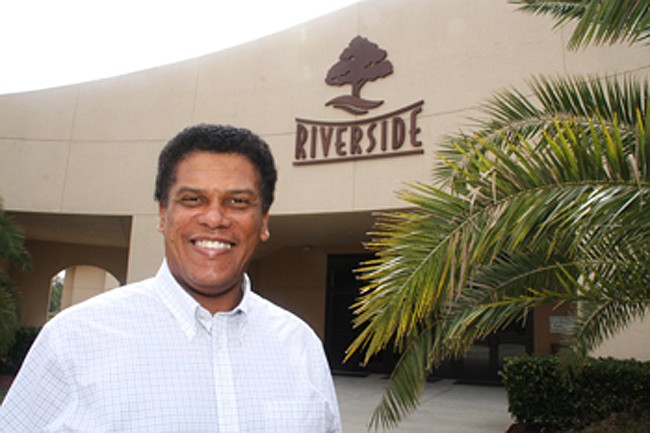- November 24, 2024
-
-
Loading

Loading

Corporations could learn a lot from Ismael Hernandez.
Many companies have embraced corporate giving to help less-fortunate people, but the donations aren't improving their lot. Despite the best intentions, Hernandez says, many corporate donors and charities are perpetuating poverty by giving stuff away.
Companies bankroll free food, school supplies, furniture and all sorts of handouts that keep people in poverty. Instead, Hernandez says, these charities should help poor people become more self-reliant so they can lift themselves out of their situation in life.
Hernandez is in a position to know. The executive director of The Freedom & Virtue Institute in Fort Myers, Hernandez grew up poor in a communist household in Puerto Rico and later became a Jesuit seminarian.
Disillusioned with the communist propaganda (his father was a Marxist and founder of Puerto Rico's Socialist Party), Hernandez now espouses the ideas of limited government and individual liberty. With decades of experience helping inner-city poor people, Hernandez teaches churches and other community organizations to promote personal responsibility and economic initiative. “The entrepreneur has always been vilified, but the man of business is showing us the way,” Hernandez says.
Hernandez acknowledges his views haven't exactly been welcomed in some circles, even by some in the Catholic Church for whom he worked for years, he says. But his ideas strike at the heart of what's wrong with charitable giving today. “We feel sorry and give things, and it makes us feel good,” Hernandez says. “When we give with the heart, we are perpetuating the problems we're trying to fix.”
Poverty is exacerbated because many charities depend on an ever-increasing population of poor people to justify their existence. These self-perpetuating organizations thrive on a combination of government grants, and they guilt successful people into giving more. “It's all a scheme to get to your pocket,” Hernandez says. “Poverty keeps their doors open.”
Instead, Hernandez says, entrepreneurs should be regarded as role models whose success should be celebrated. “You've fulfilled your duty by being the best entrepreneur you can be; make the best product you can and do it honestly,” Hernandez says. “Compassion is a voluntary exercise or it's a fraud by people who want power.” The proof is that poor people in capitalist countries are better off than the middle classes in nations that don't promote free enterprise, he says.
Hernandez' message resonates with entrepreneurs. The institute is backed by entrepreneurs such as residential developer David Lucas and technology startup founder John Gamba Jr.
“We need to challenge the system of dependency,” Hernandez says. For example, Hernandez' institute created a program called the Self Reliance Club, which helps school-aged students work toward buying their own school supplies. They earn money working at school and the community and open a savings account. In partnership with local merchants, children get a store card for the money they can use to buy school supplies.
Instead of lining up for free school supplies in the fall, students earn them by working. “You know how much better you feel about yourself?” Hernandez smiles.
Better ways to give
•Develop a corporate vision for giving that fits with your business mission.
•Recipients of your help should be expected to do something to earn your gift.
•Make sure you're not duplicating efforts.
•Communicate the values that are important in your business, such as self-reliance and hard work. Engage in activities that help people pull themselves out of poverty.
•Be wary of organizations that accept government grants because they promote a culture of dependency. Hernandez, whose own organization does not accept any government money, calls these organizations “grant groupies.”
•Once you've articulated your vision, develop a set of criteria that charities must meet. “Everyone talks the talk, but examine what they actually do,” Hernandez says.
•Ask yourself: What talents do you have to offer? You may have talents that could help young entrepreneurs lift their families out of poverty.